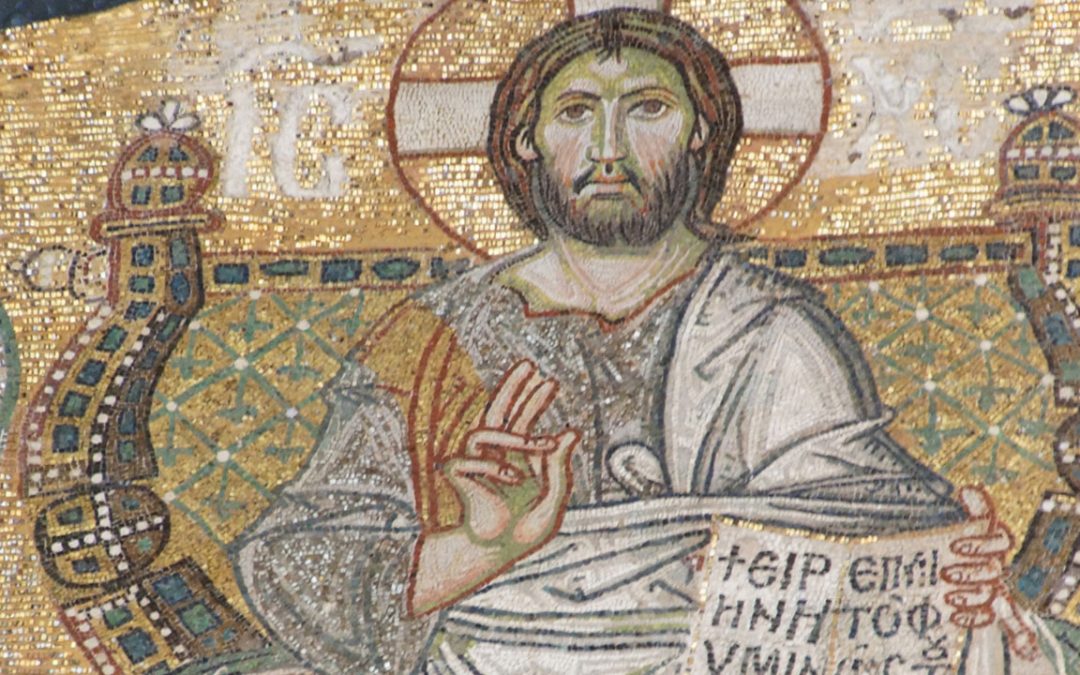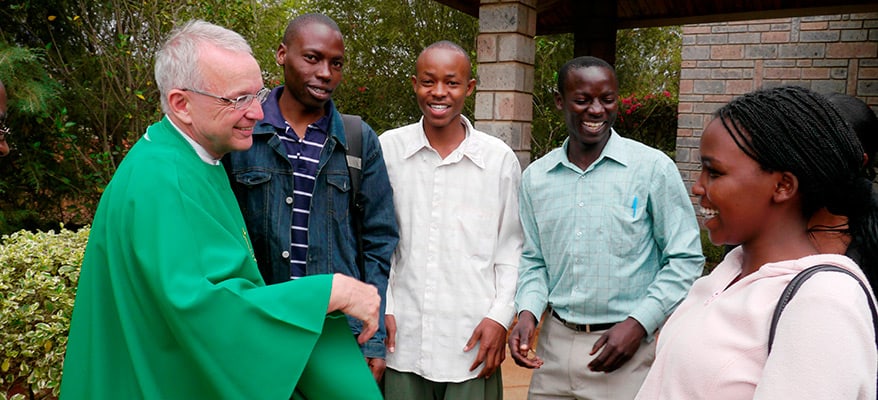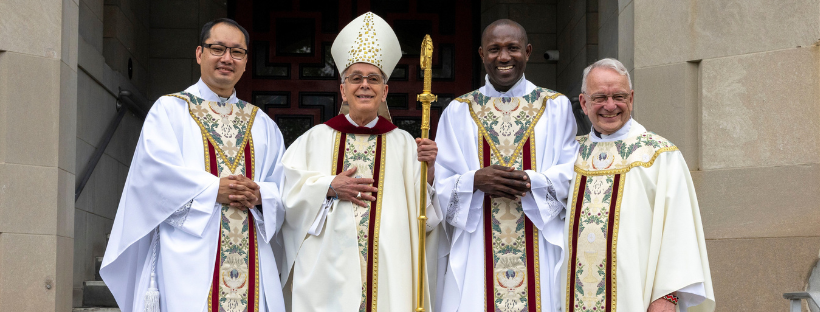If asked what movie I have seen most frequently in my whole life, I would have to reply: A Man for All Seasons. This 1960s film was based on a striking play written by Robert Bolt. In explaining his choice of Thomas More for the drama, Bolt gave this rationale: “A man takes an oath only when he wants to commit himself quite exceptionally to the statement, when he wants to make an identity between the truth of it and his own virtue; he offers himself as a guarantee.”
Profound Vision. Thomas More was martyred in 1535 at age 57. Reflecting on More’s life, Bolt affirms that “a clear sense of the self can only crystallize around something transcendental.” Thomas More explains this radical self-awareness, faith and commitment to his daughter Margaret when she visits him in prison: “When a man takes an oath, Meg, he’s holding his own self in his own hands. Like water. And if he opens his fingers then—he needn’t hope to find himself again. Some men aren’t capable of this, but I’d be loathe to think your father one of them.” Indeed, More exemplifies “a Christian saint, as a hero of selfhood.”
Christ the King Feast. Coming at the end of the liturgical year, this feast is a wonderful opportunity for reflection on the depth of our acceptance of Christ as our King, our Crucified King. Thomas More gave his answer—with his life. Jesus had truly become his King! In deep faith, More could even say to his executioner: “Friend, be not afraid of your office. You send me to God.”
More’s Example. I distinctly remember the 2010 visit of Pope Benedict XVI to the United Kingdom. As an aside, I recall the vivid image of the Pope and Queen Elizabeth, standing side by side—both with full heads of white hair! One of the pope’s speeches was given in Westminster Hall; the trial of Saint Thomas More occurred in that very place; he was condemned to death for refusing to follow the rebellion of King Henry VIII against papal authority on divorce. Thomas More adhered to God and his personal conscience; his final words on the scaffold were: “The King’s good servant, but God’s first.”
More’s Faith. More’s convictions are vividly revealed in his letters from prison in the Tower of London; they manifest a deep devotion to the suffering Christ. For More, Christ was his suffering-crucified King. More is truly a “man for all seasons.”
Our Prayer. Each day as we Christians say the Our Father, we pray: Your
Kingdom come! And, what kind of kingdom do we work, pray, and suffer for? As stated so beautifully in the Preface of today’s Mass, we ask God to establish “an eternal and universal kingdom, a kingdom of truth and life, a kingdom of holiness and grace, a kingdom of justice, love and peace.” O, crucified-risen Lord, may your kingdom come!
James H. Kroeger, M.M.
Solemnity of our Lord Jesus, Christ the King
Jesus, my Lord, my king, my God, my all,
I kneel before your throne of grace
and ask only that you give me the courage
and strength to be true to my baptismal vows
to know, love and serve you above all
with all my heart, mind, soul and strength.
May your kingdom come upon this earth
that your justice, truth and peace
might prevail. Help all to seek and find
holiness and love in everyday
things and ordinary actions.
May your reign embrace all peoples
nations and cultures, that your Gospel
might be preached, received and
believed around the world in every place
and in every heart.
Grant that I might drive from my soul
any obstacle or distraction to my
answering your call to follow you
no matter where your Spirit takes me
knowing full well it ends at the Cross
where at length I offer my life to you.
Amen
By Fr. Joseph Veneroso. M.M.




